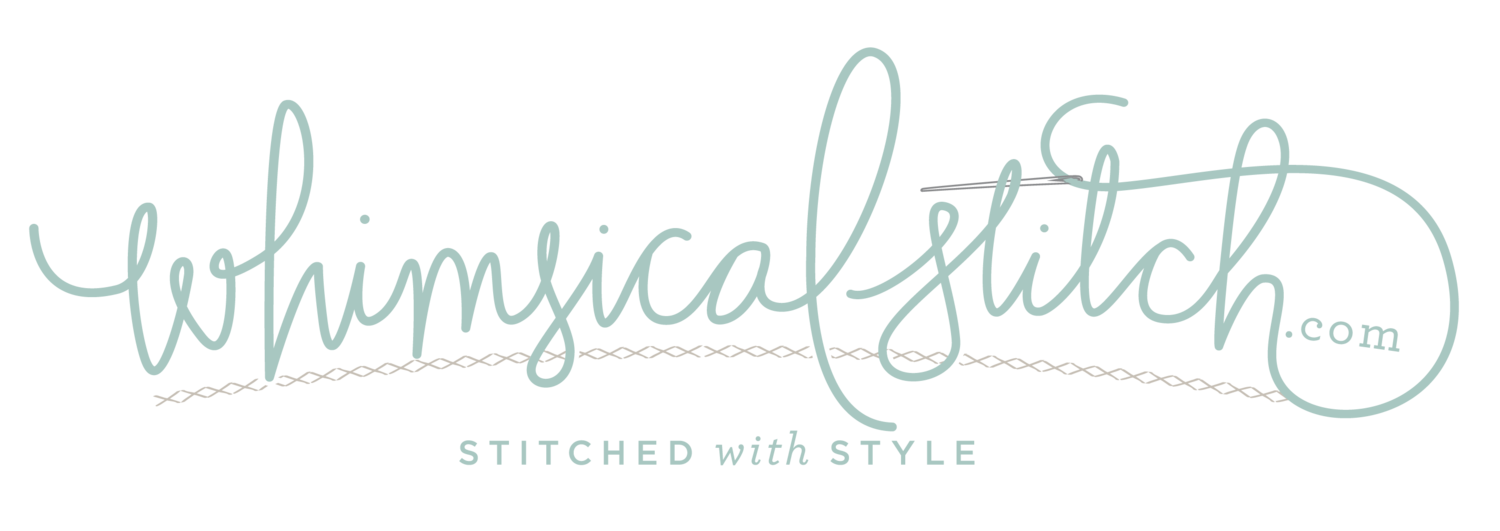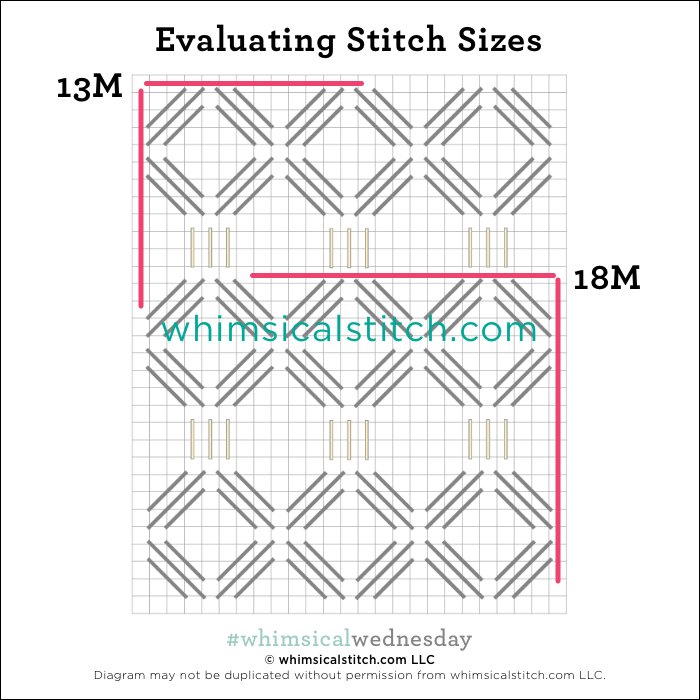I have a confession. I use #whimsicalwednesday to audition stitches for class projects and some personal projects. Today’s stitch is the elusive background stitch I’ve been looking for!
The stitched sample is the background on a Kirk & Bradley hot air balloon. Even though the stitch is very open, it uses only four plies of Splendor to ensure the stitch isn’t too heavy. An earlier candidate is this stitch, which I always knew was too small for the area. I liked it, but I knew it was too small.
This stitch is most suited for a large open area, such as a background, tabletop, or sky. I would use 2-3 plies of silk floss on 18M and no more than four plies on 13M. If you need metallic, I encourage you to use a lightweight single-strand metallic, such as size 8 Kreinik or Flair for 13M or Petite Silk Lame for 18M. You may also want to consider just stitching the group of stitches on the diagram in a random pattern on a background. (Don’t connect them like I did on the stitched sample.) I know the thought of random makes some hearts run cold, but I promise it will be really pretty. To dress up the stitch a little bit, consider adding a bead over two rows in the center of each flower.
As you are auditioning stitches (from any stitch source), count the number of canvas threads on the diagram that match your mesh size. And there you have what an inch of the stitch will look like. Evaluate that against the area where you plan to use the stitch and make your final decision. If you start integrating this step into your stitch selection process, you may be surprised at how many stitches you think are large are much smaller than you realize.
By (sometimes) including this step in my own process, I find I am now integrating much longer stitches than I ever thought I would. I used to think a stitch six rows long was super big. I have very much changed my tune, which has helped me expand my creativity, especially for large-space stitches.
Today’s stitch diagram, along with all other #whimsicalwednesday and #smallspacesunday stitch diagrams, can also be found on a Pinterest board here. Be sure to follow whimsicalstitch.com on Facebook, Pinterest, Instagram, and Twitter.
If you like what you see on this blog, there's more. Mary’s Whimsical Stitches is a series of four books offering contemporary how-to collections of more than 200 stitches (in each volume) for all stitchers, regardless of skill level. All books include updated and sequenced diagrams from this blog, plus a collection of all-new stitches from private lessons and other class projects. Visit here to find a needlepoint retailer that carries my books.
New to needlepoint or looking for a refresher? Please download a handy how-to guide covering basic needlepoint stitches and stitch compensation techniques along with new top-line information on needlepoint materials and tools, how to handle threads, and other helpful needlepoint resources.
whimsicalstitch.com also sells Stitch Guides and Stitch Concepts for Melissa Shirley Designs, Zecca Designs, Sandra Gilmore, Purple Palm, Maggie, and Penny MacLeod, and many more. Click here to see the newest guides and click here to see the entire collection.
I hope you have the perfect spot for this stitch! Please enjoy! Have a wonderful #whimsicalwednesday!
A Note about Diagrams
I use color in diagrams to make them as clear as possible. The primary function of different colored lines is to illustrate a stitch sequence. For example, the layering of colors demonstrates you add them in that order. They can also provide ideas on integrating additional threads (one line for each color). Or, you can use the same thread for all color lines. That's where I encourage you to use your imagination for the space you are stitching!






